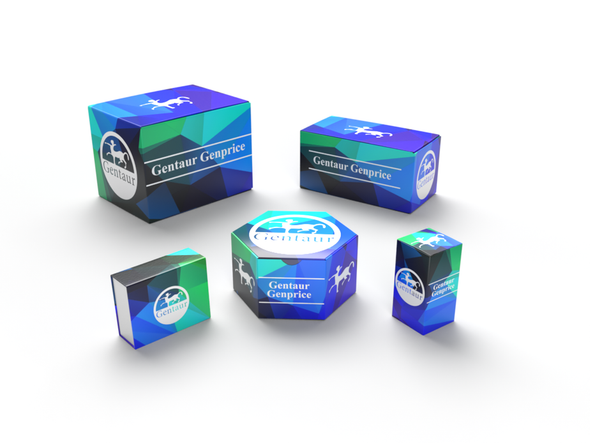Description
MEST Antibody | 22-564 | Gentaur UK, US & Europe Distribution
Host: Rabbit
Reactivity: Human, Mouse, Rat
Homology: N/A
Immunogen: Recombinant fusion protein containing a sequence corresponding to amino acids 146-335 of human MEST (NP_002393.2) .
Research Area: Cell Cycle
Tested Application: WB, IF
Application: WB: 1:500 - 1:2000
IF: 1:50 - 1:100
Specificiy: N/A
Positive Control 1: MCF7
Positive Control 2: BT-474
Positive Control 3: HT-29
Positive Control 4: Mouse testis
Positive Control 5: N/A
Positive Control 6: N/A
Molecular Weight: Observed: 39kDa
Validation: N/A
Isoform: N/A
Purification: Affinity purification
Clonality: Polyclonal
Clone: N/A
Isotype: IgG
Conjugate: Unconjugated
Physical State: Liquid
Buffer: PBS with 0.02% sodium azide, 50% glycerol, pH7.3.
Concentration: N/A
Storage Condition: Store at -20˚C. Avoid freeze / thaw cycles.
Alternate Name: MEST, paternally expressed gene 1, mesoderm specific transcript, PEG1, MGC8703, MGC111102, DKFZp686L18234, mesoderm specific transcript homolog (mouse) , MEST
User Note: Optimal dilutions for each application to be determined by the researcher.
BACKGROUND: This gene encodes a member of the alpha/beta hydrolase superfamily. It is imprinted, exhibiting preferential expression from the paternal allele in fetal tissues, and isoform-specific imprinting in lymphocytes. The loss of imprinting of this gene has been linked to certain types of cancer and may be due to promotor switching. The encoded protein may play a role in development. Alternatively spliced transcript variants encoding multiple isoforms have been identified for this gene. Pseudogenes of this gene are located on the short arm of chromosomes 3 and 4, and the long arm of chromosomes 6 and 15.






